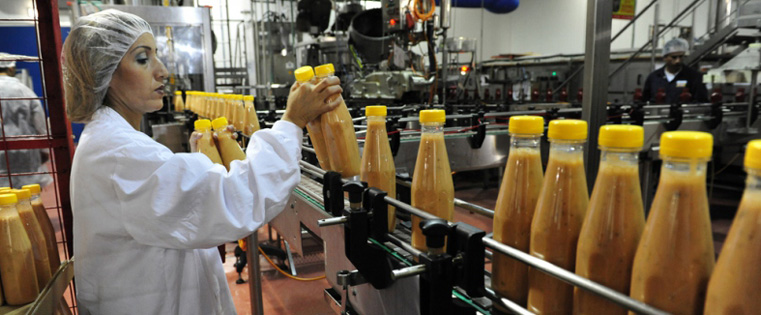5 Critical Reasons to Rollout Food Safety Training

According to Centers for Disease Control and Prevention (CDC) estimates, each year roughly 1 in 6 Americans (or 48 million people) get sick, 128,000 are hospitalized, and 3,000 die of foodborne diseases.
Food processing companies that don’t comply with food safety standards have to face voluntary or Food Safety Modernization Act (FSMA) and Food and Drug Administration (FDA) mandated product recalls. They may face lawsuits and have to pay huge penalties to the affected consumers or parties. An organization’s reputation will be compromised upon product recall. Consumers will hesitate to buy recalled food brands in the future.
It is therefore important to avoid such situations. You can avoid huge financial losses and disrepute by training your employees on food safety – the importance of maintaining quality control mechanisms and adhering to food safety standards.
Here I discuss five critical reasons to train employees of the food processing sector on food safety.
1. Shows the ‘Why’ Part of their Tasks
Workers in the food processing industry execute common tasks, without knowing the underlying reason. This can become a mundane routine and they may turn casual over a period of time, neglecting the tasks. Proper food safety training will tell employees why they are cleaning and sanitizing equipment, why they can’t stack materials, why certain materials and products are to be stored at certain temperatures, and more. When they understand how public health and safety is closely tied with each task they do, they will exercise due diligence.
2. Avoids Foodborne Illnesses
Despite stringent measures, foodborne illnesses are causing severe impediments to public health in developed countries such as USA, England, Australia, and New Zealand. They are the cause of unplanned hospital expenses, children missing school, and employee absenteeism; in serious cases, they even lead to death. Bacteria and viruses such as Hepatitis A, Listeria, Salmonella, Campylobacter, and E. Coli cause foodborne illnesses in many cases.
Food poisoning can be avoided with food safety best practices. Proper food safety training is necessary for employees who handle food, to avoid adverse consequences. Training them on personal hygiene, appropriate holding temperatures, and suitable cooling procedures will make all the difference.
Going ahead, when you consider e-learning for food safety training, you need not waste your employees’ working hours and reduce a lot of training-related expenditure. Online food safety training is a better way to educate your employees on all the topics mentioned above.
Click this link to know how to impart compliance training with e-learning.
3. Fulfils Legal Requirements
Compliance with food safety measures is mandatory as foodborne illnesses break out easily. Non-compliance with food safety standards can have adverse consequences on your business in the long run. Lawsuits, huge penalties, and bad reputation will follow.
Therefore, food safety training is essential to all your employees who work in food processing. In Australia and the US, it’s a legal requirement that all food handling employees be trained on food safety. They also have to renew their food safety certifications periodically.
Employees should also be trained on state, territory, and industry-specific regulations in some cases. Hazard Analysis and Critical Control Points (HACCP) is considered the best certification in food safety. You can customize HACCP and include essential topics specific to your industry, in online safety training, for the benefit of your organization and employees.
4. Stops Cross-contamination
Person-to-person contact is the main way bacteria and pathogens are transferred. Employees who are trained on food safety and handling practices will be equipped to stop cross-contamination. CDC says, one in five foodborne illness outbreaks spread through infected employees.
Training on cleaning and sanitizing equipment appropriately, knowing the time and temperature bondage with bacteria, and more will minimize chances of foodborne illness outbreaks.
5. Builds a Foundation for Hygiene
Food safety is all about doing simple things. Doing them right is all your employees need to do. For that, they need to be trained. Maintaining personal hygiene is the first thing employees should practice for safe handling of food. Washing hands properly, sanitizing equipment and implements, all play a major role in food safety training.
Don’t confine your food safety training to managers and supervisors; extend it to all employees in your food processing unit, as workers are the actual food-handlers.
Training, application at the workplace, and consistent reinforcement will play a major role in changing the behavior of your employees. Once they get habituated, they will follow food safety best practices, unconsciously.



![5 Critical Reasons to Train Employees on Food Safety [Infographic]](https://blog.commlabindia.com/hubfs/Imported_Blog_Media/train-employees-on-food-safety-infographic1.jpg)

